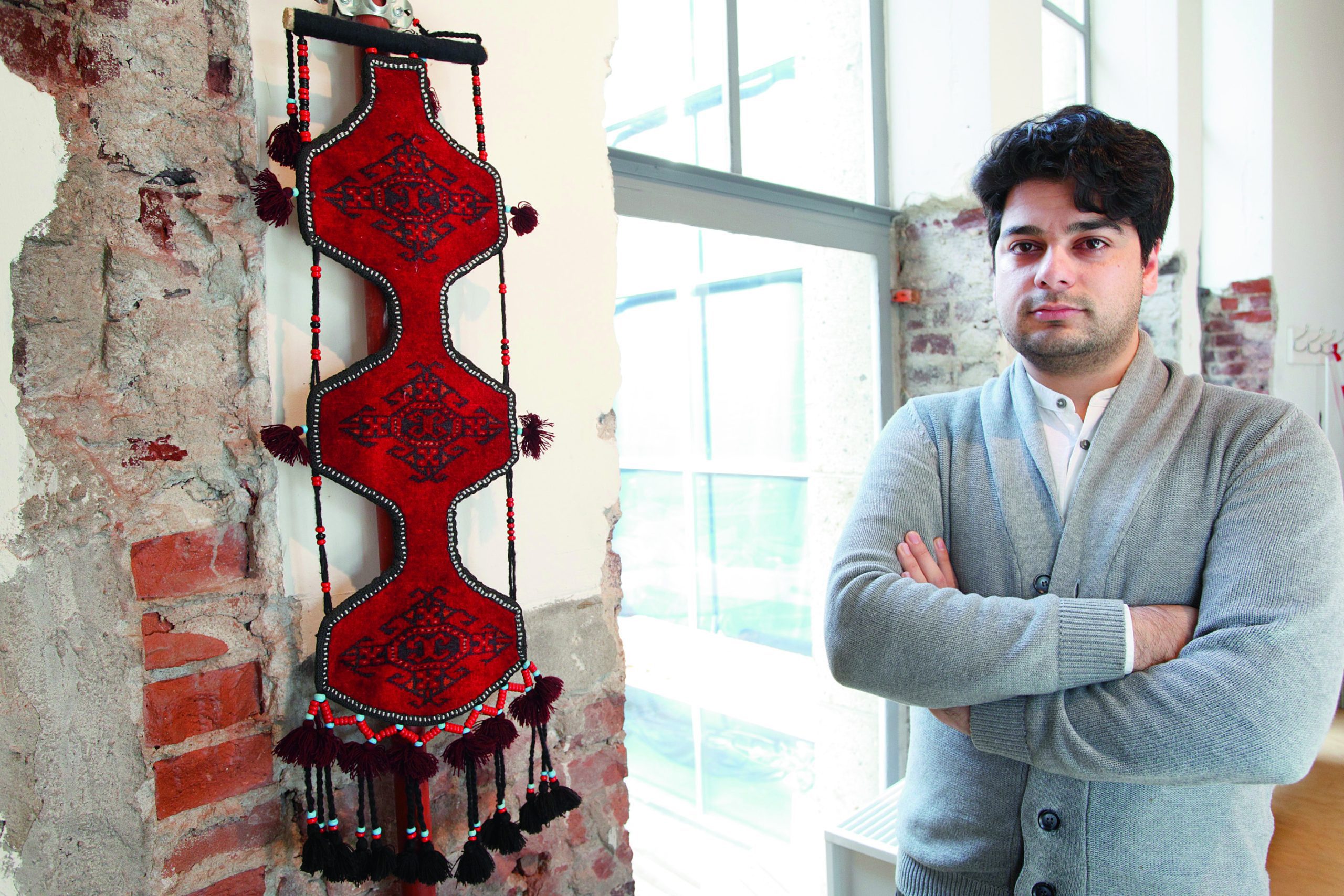Heshmat Najim (26) came to the Netherlands from Afghanistan eleven years ago, together with his brother. At their home in Rotterdam, two rugs hang on the wall next to the kitchen door.
“It creates a nice atmosphere in the house; it’s like I’m back in Afghanistan.” He looks at the rugs every day, and this reminds him of his family and friends who still live in Afghanistan. His father gave him the rugs two years ago, during a trip to visit family in Afghanistan. This helps makes the connection with his home country stronger. Najim is pursuing an MSc degree in urbanism. He hopes that one day he can use his studies to do something meaningful for his country.
Diss was created in conjunction with the VSSD (Association for Study and Student Interests in Delft) and the Student Council, but is organized differently than traditional student societies: Diss doesn’t have official members and a full-time board, meaning its opportunity to affect change is limited.
Being on the board of a Dutch student society is essentially a full-time job, a paid position done over a full work week, with funding possibly coming from member dues and business sponsorships. The Diss board is volunteer and done in conjunction with an MSc programme, so there is much less time to spend on getting things done, and without official members Diss isn’t able to collect dues or get sponsorships and is thus completely dependent on the university for funding.
Diss is also affected by the apathy of international students. While Jonathan Mugerwa, Diss’s current chairman, estimates that Diss consistently reaches around 500 to 600 international students at TU Delft, he says this is primarily for social events, and that most international students just do not speak up, which is a problem: “For us to be able to effectively address these issues – such as housing and tuition – we need to show that it’s not only a group of people on the board but rather a large group of international students who have a certain view on a certain issue. And for that to be able to happen international students must take an active role.”
According to the international student barometer survey, TU Delft’s international students are more concerned about understanding grading, contact with professors, housing and career options than with their social lives.
This is why Mugerwa says the goal is to shift into advocacy for these issues, but this will only work if there are students behind the message. This year Diss’s board will continue to promote activities but also link with other international student groups, such as the Indian Student Association. In this way Diss hopes to network with more students.
There is also a bit of chicken and egg problem as to whether students will approach Diss for issues like housing if they think Diss is only for social events, but without more student involvement social events are all Diss can do.
Mugerwa nevertheless is hoping this will change. He wants TU Delft students to know that “we’re approachable. International students can contact us for whatever reason, to let us know how things are going or with ideas or suggestions they may have. We have the network, we know who to talk to about these things.”
For more info about Diss and its upcoming events, go to the online version of this article at the Delta website. DISS is also on Facebook at www.diss-online.nl and can be mailed at board@diss-online.nl



Comments are closed.